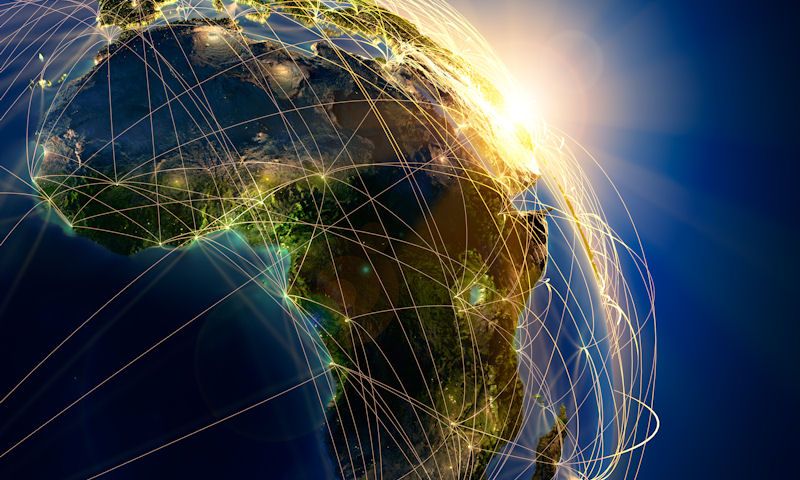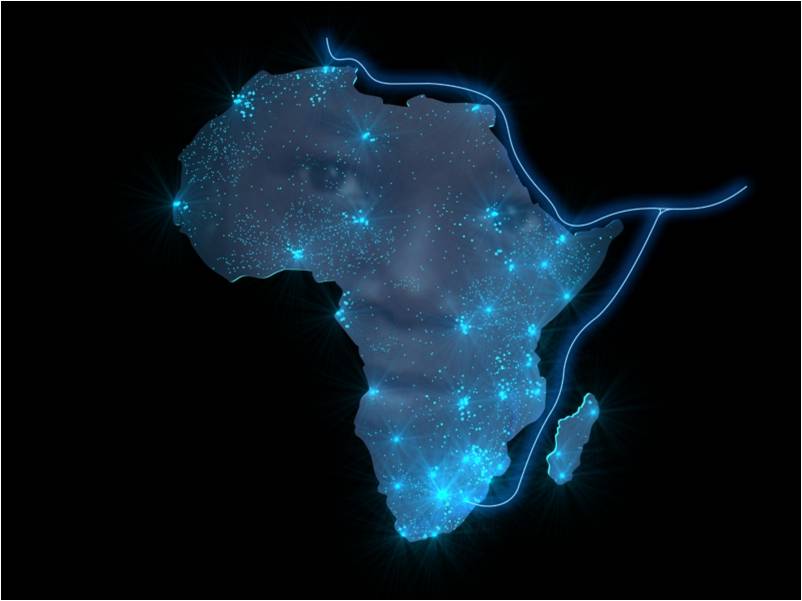Microsoft and Liquid Intelligent Technologies Partner to Further Provide Internet Access to 20M Africans

Microsoft has today announced several new initiatives aimed at expanding digital infrastructure, digital skilling, and digital development in the world’s Least Developed Countries (LDCs).
The tech giant is partnering with Liquid Intelligent Technologies, a subsidiary of Cassava Technologies, to provide high-speed internet access to 20 million people in Africa by the end of 2025. This collaboration will extend Microsoft’s Airband Initiative, which aims to provide high-speed internet access to people in underserved areas such as the Democratic Republic of the Congo, Tanzania, and Zambia, but it will not be limited to these countries.
The goal of this effort is to increase access to high-speed connectivity even in the most remote areas of Nigeria, Kenya, and South Africa. This ambitious project aims to bridge the digital divide and provide critical resources to those who have fallen behind due to the rapid pace of technological advancement.
Commenting on the partnership, Vickie Robinson, the General Manager of Microsoft’s Airband Initiative said “This new partnership with Liquid Intelligent Technologies builds upon our existing collaboration to catalyze economic growth and development in Africa, enabling us to accelerate our efforts to extend high-speed internet to a quarter of a billion people by the end of 2025, including 100 million in Africa.”
Microsoft is also partnering with the International Organization of Employers and Synapse to train 20,000 youth, women, and entrepreneurs in digital, business, and employability skills across four LDCs. As the access to the internet expands, more resources will be needed to defend the growing digital ecosystem, and the company is focusing on growing the cybersecurity talent pool, including in Africa.
Microsoft Partners with OCP Africa to Scale its Agritech Platform

In addition, Microsoft is partnering with OCP Africa to scale its Digital Agriculture Platform, which provides fertilizer solutions tailored to local conditions and the needs of soils and crops across Africa, to better support farmers on the ground. By 2030, the partnership will have helped 40 million African farmers and agri-stakeholders.
Microsoft’s initiatives come ahead of the United Nations LDC5 Private Sector Forum, which will look at how digital development can help LDCs achieve more sustainable development. The private sector has a significant role to play in creating opportunities for the 880 million people who live in LDCs, where only 36% of the population currently uses the internet. The company’s ongoing commitment to the United Nations mission is an important aspect of these initiatives.
According to Brad Smith, Microsoft’s vice chair and president, “Fifty years after the LDCs were classified by the UN as nations most in need of social, economic, and environmental opportunities to create growth, these 46 countries combined account for 13% of the world’s population, but only about 1.5% of global GDP and less than 1% of global trade. It is clear that more needs to be done.”
“The private sector can play an important role in creating opportunities for the 880 million people living in LDCs, where only 36% of the population uses the internet today, and Microsoft needs to do its part. The need for public-private partnerships has never been clearer. This is not a philanthropic exercise, but rather a business imperative – And a call to action for all of us to do more,” he added.
What this means for Africa According to the World Bank
Microsoft’s Airband Initiative is collaborating with a wide range of organizations to develop, implement, and sustain programs that offer customized connectivity solutions tailored to the needs of specific communities. These collaborations entail working closely with broadband providers, local internet service providers (ISPs), energy partners, international groups, and municipal governments to bring internet access to areas where traditional infrastructure has fallen short. The initiative’s ultimate goal is to provide reliable, high-speed internet access to unserved or underserved communities around the world.
Microsoft’s efforts are aimed at addressing the social, economic, and environmental challenges that LDCs face, despite accounting for 13% of the world’s population but only about 1.5% of global GDP and less than 1% of global trade. Microsoft hopes to contribute to the UN’s goal of accelerating sustainable development in LDCs by expanding digital infrastructure, digital skilling, and digital development.
The rapid adoption of digital technologies across the African continent has increased exponentially in recent years. This has, however, brought to light an important issue: the digital divide in Africa is widening, as access to high-speed connectivity remains a challenge for many Africans. Despite the abundance of digital tools and resources, their effectiveness is hampered by a lack of access, with only 601,643,061 Internet users recorded in Africa in December 2021, representing a 43.1% penetration rate, according to Internet World Stats.
As both companies work to create a truly inclusive digital economy, this initiative is both timely and crucial in securing the future of Africans on the continent. By bridging the high-speed connectivity gap, these initiatives pave the way for a brighter future in Africa, where the full potential of digital technologies can be realized.
